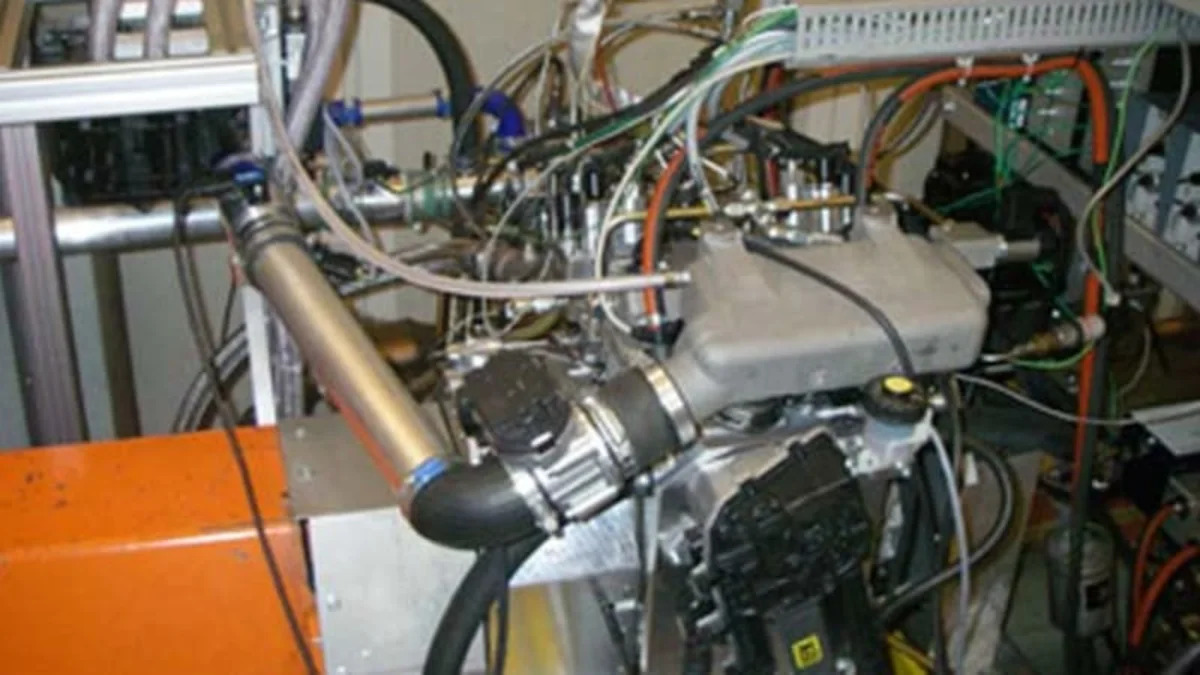A 1.0-liter two-cylinder that performs like a 3.0 liter V6? On what planet? Researchers at Switzerland's ETH Zurich school of engineering are developing pneumatic hybrid engines that use compressed air to deliver big performance and efficiency from a small package. During deceleration, the engine's pistons are used to compress air, which is diverted through a special valve and into a holding tank. Rather than try to propel the vehicle directly with compressed air, like Guy Negre's hybrid system, ETH Zurich's setup uses the compressed air as an instant supercharger to gap where a turbocharger would be spinning up.
The goal is to offer much more efficient engines for less money than electric hybrids. Buyers in China or India can't afford the expensive premium that current hybrids command, so something less expensive has to be found. The compressed air systems would achieve 80% of the benefit while only costing 20% more. Dropping the cylinder count reduces frictional and pumping losses, and technologies like direct fuel injection and HCCI can offer diesel-like efficiency out of a gasoline engine. A small, turbocharged two-cylinder with a compressed air system for oomph when needed could return more than 100MPG in a small, light vehicle. Doesn't sound so crazy now, does it?
[Source: Wards Auto | Photo: Wards]
The goal is to offer much more efficient engines for less money than electric hybrids. Buyers in China or India can't afford the expensive premium that current hybrids command, so something less expensive has to be found. The compressed air systems would achieve 80% of the benefit while only costing 20% more. Dropping the cylinder count reduces frictional and pumping losses, and technologies like direct fuel injection and HCCI can offer diesel-like efficiency out of a gasoline engine. A small, turbocharged two-cylinder with a compressed air system for oomph when needed could return more than 100MPG in a small, light vehicle. Doesn't sound so crazy now, does it?
[Source: Wards Auto | Photo: Wards]


Sign in to post
Please sign in to leave a comment.
Continue